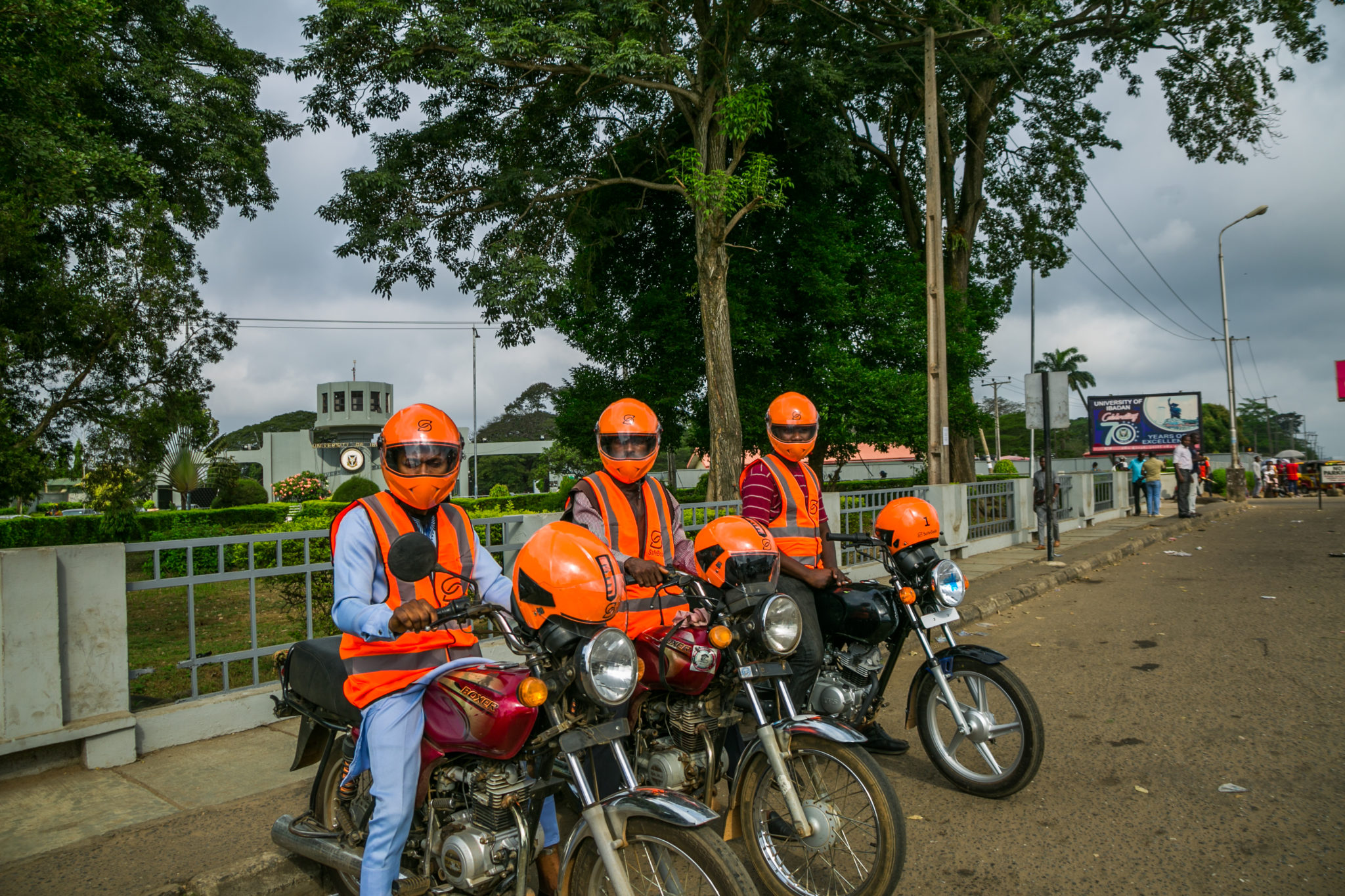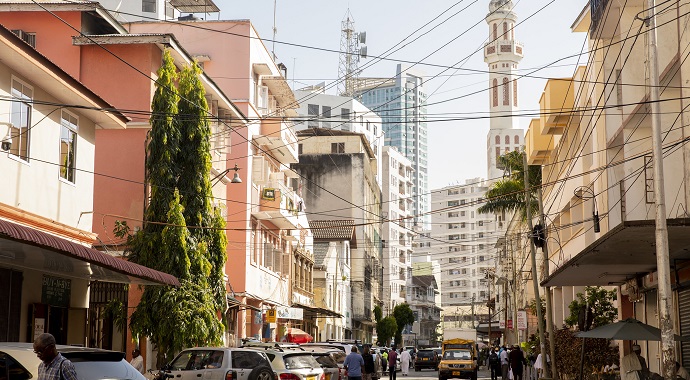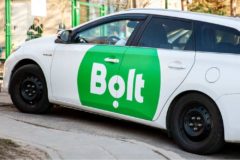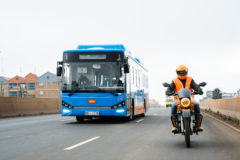SafeBoda, the Ugandan bike-hailing startup, has maintained market dominance in the business in Uganda since it launched seven years ago. It has replicated the same stride in Nigeria since it started operations in 2020, despite choosing to launch in Ibadan, a slow-paced town, instead of the country’s commercial hub, Lagos. Now, it is expanding its territory of operations and adding a new vertical, car-hailing, to its service while at it.
This month, after weeks of beta testing across Nigeria and Uganda, Safeboda launched its car-hailing vertical called Cars by SafeBoda to the public. The startup had run a two-month-long beta test in Kampala, the capital of Uganda, gathering feedback and iterating the product, before testing in Ibadan for a week. According to Olaoluwa Arokoyu, Nigeria’s country manager at Safeboda, who spoke to TechCabal during the testing, “The product is already going through a series of iterations in Uganda, and when it’s done, we’d run a quick one in Nigeria and launch.”
Arokoyu told TechCabal over a call that the constant demand they received from their customers gave them the conviction that, despite being perceived as a saturated market, there is still enough space to play in the car-hailing sub-segment. “Over the years, customers have approached us with unceasing demand for car-hailing. I’m glad that we have finally answered them,” he said.
With this new vertical, it seems Safeboda is also doubling down on the use cases of its mobile money. The startup said every trip on Car by SafeBoda would be cashless, thus eradicating the no-change headache.
“We’re very excited to launch Car by SafeBoda in our super app with a safer, more convenient solution than what is offered in the market,” Rapa Ricky Thomson, SafeBoda co-founder and director, said in a statement. “We’ve talked to drivers and passengers, tested our product, and we are going to change transportation in Uganda forever, we are going completely cashless.”
Customers can use the SafeBoda Wallet to pay for trips. Users can deposit in their wallet via mobile money, agents, or even give cash to the driver to help them load. This play makes the driver double as an agent. Customers also earn interest on any balance they have on their SafeBoda wallet via the Savings product. The wallet’s full-on functionality would only be accessible to users in Uganda for now because the wallet offering isn’t yet fully functional in Nigeria. Nigerian users can only buy airtime at the moment.
For the past seven years, SafeBoda has been driven by the ambition to change transportation in all the markets it plays in, and the startup has had to deal with lots of market forces to keep that ambition alive. Uber and Bolt, the world’s two biggest ride-hailing firms, have tested and challenged its dominance with their boda-boda vertical—first in Uganda then in Nigeria—but, despite their huge fangs, couldn’t make a serious dent in SafeBoda’s market share.
The company has had its own fair share of pitfalls. In 2020, it halted all its Kenyan operations. SafeBoda said COVID-19 was the reason for the discontinuation, but several precursors like low traction and the expensive cost of operating a bike-hailing venture in Kenya were likely a bigger factor. As at when Safeboda exited Kenya, with the average boda-boda ride costing KSh 221 ($2), hailing a car is relatively cheaper than hailing a bike, so users who can afford to hail a bike would rather go for a car. There were also the offline guys who seemed to be more convenient (and cheaper). To snag user growth, Safeboda and other players like UberBoda and BoltBoda showered discounts on users, which riders complained were eating into their profit margins. As a result, riders began to reject orders in droves, and this hurt the revenue flow of the entire sub-segment for everybody. But deep-pocketed competitors like Uber and Bolt had car-hailing verticals that could easily make up for whatever they might be burning on the boda-boda side. Safeboda only had bikes transporting people and delivering goods.
Now that SafeBoda is offering car-hailing, will it be making a Kenyan comeback? We don’t think so. Kenya is currently not an easy place for ride-hailing firms to be at the moment as the government has picked a keen interest in capping the maximum commission companies can charge on rides. And the market has started reacting in this direction. For instance, Little said it is okay with the new direction while Uber has called the government to court to make a case that the low rate eats into its cost of operation margin. Besides, there’s also nothing concrete to determine whether Safeboda would make such a move.
But judging from the company’s strategy and response from the couple of interviews with TechCabal, it likely won’t.
For seven years, Safeboda has maintained operations in only two countries, building loyal communities and scooping market shares. Today, it holds more than 80% market share of the boda-boda hailing market in Uganda and Nigeria, because it is obsessed with market intelligence. When asked about the company’s expansion plan, without dismissing the possibility of expanding into new cities, Aroyoku said “There’s still more to do in our current market. There’s a huge opportunity for growth.”
To put this in context, according to Aroyoku, bike-hailing accounts for only 10% of the entire two-wheeler market in Ibadan, while 90% of the market goes to the offline guys. Out of the 10%, Safeboda owns 9.5% while other players fiddle with the remaining 0.5%. This means SafeBoda’s biggest competition isn’t Uber or MaxNG, but the guys without a piece of tech.
While SafeBoda is striving to grow its bike-hailing vertical, it now has the car-hailing side to worry about. Aroyoku is confident that their approach, which he called a “secret sauce”, would work magic as usual. But this time is obviously different as SafeBoda won’t be playing defence but coming to play in a sector with two heavy market leaders.
Earlier this year in March when SafeBoda celebrated two years of operating in Nigeria, the question TechCabal asked was: Can it keep its lead in the market? Apparently, the startup wasn’t only interested in keeping its boda-boda crown, it was also keen on giving everybody in the car-hailing territory a run for their money.
The Future of Commerce 2022 is brought to you by TechCabal in partnership with Moniepoint by TeamApt and is sponsored by dLocal, KasuwaGo, and QoreID, with Wimbart as a media partner. Register here to attend the conference





















